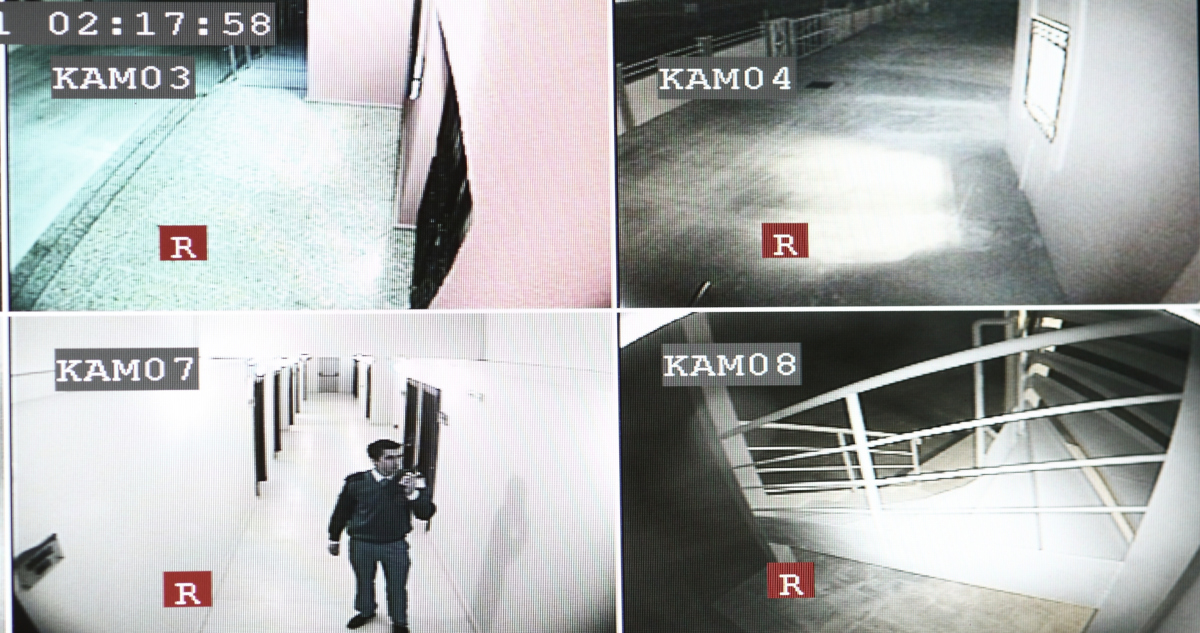
Oct. 25, 2022 – The Wisconsin public records law does not entitle an employer to seek judicial review of the disclosure of video footage that depicts one of its employees, the Wisconsin Court of Appeals has ruled.
In Journal Sentinel, Inc. v. Froedtert Health, Inc., 2021AP615 (July 6, 2022), the Court of Appeals District I also held that only an individual whose personally identifiable information is contained in a record may seek judicial review of the record’s disclosure.
Murder Caught on Tape
In January 2019, the Milwaukee County District Attorney charged Kenneth Freeman with first-degree intentional homicide for the killing of a nurse in the parking garage of Froedtert Hospital (Froedtert) in Milwaukee. At the time, Froedtert employed Freeman as a valet.
 Jeff M. Brown is a legal writer for the State Bar of Wisconsin, Madison. He can be reached by
email or by phone at (608) 250-6126.
Jeff M. Brown is a legal writer for the State Bar of Wisconsin, Madison. He can be reached by
email or by phone at (608) 250-6126.
In November 2019, the Milwaukee Journal-Sentinel (MJS) submitted an open records request to the Milwaukee County Sheriff’s Office (MCSO), seeking surveillance video footage of Freeman in the parking garage. MCSO told MJS that it wouldn’t release the footage until after the case against Freeman was finished.
In March 2020, Freeman was found not guilty by reason of mental disease or defect and was committed for life to the state Department of Health Services.
In July 2020, MJS again requested copy of the video footage from MCSO. MSJ requested footage of the two hours that Freeman spent walking around the hospital grounds and the garage and did not request footage that depicted the victim or Freeman’s attack on her.
MCSO denied the request, because it concluded that the public interest in respecting the privacy and dignity of the victim’s family outweighed the public’s interest in releasing the footage.
In September 2020, MJS petitioned the Milwaukee County Circuit Court for a writ of mandamus to compel MCSO to release the requested footage. The circuit court issued a writ ordering MCSO to either release the footage or show cause as to why releasing the footage was not required or possible.
MCSO moved to quash the writ. Froedtert also filed a motion to quash and joined MCSO’s motion to quash.
The circuit court denied the motions to quash in March 2021 and ordered MCSO to release the requested footage to MJS. Froedtert, but not MCSO, appealed.
Footage is a Public Record
Froedtert argued on appeal that the public policy interest in respecting the privacy rights of crime victims’ families outweighed the public’s interest in obtaining access to the surveillance video footage.
Froedtert also argued that under the Wisconsin public records law, the video footage was not subject to disclosure because it was 1) a record created by a private employer that related to an employee; and 2) the employee hadn’t authorized the release of the record.
MSJ argued that the public records law barred Froedtert from blocking the release of the surveillance video footage by MCSO.
Writing for a three-judge panel, Presiding Judge Joseph Donald explained that the surveillance video footage was a record kept by a public authority and therefore a record for purposes of the public records law, even though it was created by a private company.
“There is not a requirement that the record be created by a public authority,” Judge Donald wrote. “Privately created materials, such as the video in this case, are not exempt from disclosure.”
Froedtert Not Entitled to Judicial Review
Donald next pointed out that under the state public records law, a person is not entitled to have a court review a decision to release a public record, with three exceptions.
If a requested record falls within one of the exceptions, the record custodian must provide notice to a “record subject” and the subject may seek judicial review to prevent disclosure of the record.
Froedtert argued that the third exception – for a record created by an employer that contains information related to an employee, unless the employee authorizes the release – applied to the video footage requested by MJS.
But Judge Donald explained that Froedtert was not a “record subject,” which the public records law defines as “an individual about whom personally identifiable information is contained in a record.”
“Froedtert is not an individual about whom personally identifiable information is contained in the record,” Donald wrote. “The statutes does not define a ‘record subject’ as an employer, like Froedtert. Thus … [Froedtert] does not have a right under the statutes to notice or to maintain an action to restrain MCSO from providing the Journal with access to the requested video footage.”
